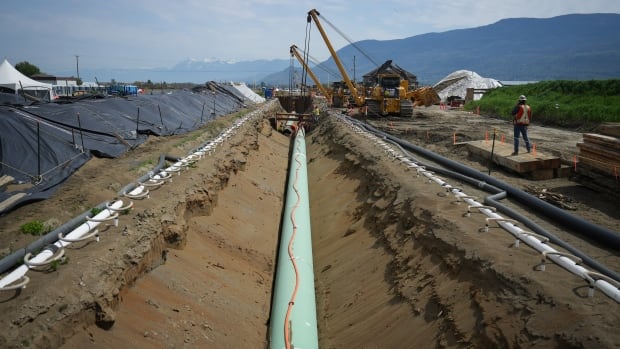Trans Mountain’s announcement that its expanded oil pipeline will begin commercial operations on May 1 surprised analysts as the long-delayed $34 billion project began earlier than expected.
The federally owned company set the date late Wednesday, but previously said the startup would take place in the second quarter.
Canada is the fourth largest oil producer, but its extensive pipelines limit production. The Trans Mountain expansion will increase shipping from the British Columbia coast to Asia and the U.S. West Coast.
Dylan White, North American crude oil analyst at Wood Mackenzie, said the May 1 target is ambitious given Trans Mountain still needs to complete line filling and obtain regulatory approval. He added that late May or early June is more realistic.
“I think everyone I talked to about startups was expecting June 1st,” Rory Johnston, an analyst at Commodity Context, said of X.
Trans Mountain has encountered many problems during construction, most recently installing pipes in solid rock in British Columbia.
The expansion will nearly triple the flow of oil from Alberta to Canada’s Pacific Coast to 890,000 barrels per day.
The volume will increase gradually. Trans Mountain said in March that the pipeline would be highly utilized as early as next year and be fully operational by 2025-26.
Western Canada Select (WCS) crude oil initially traded little changed from the previous day, according to market participants.
The pipeline expansion will increase competition from Enbridge’s Mainline and TC Energy’s Keystone Pipeline, which transport Canadian crude to U.S. refineries.
Enbridge said it expects Trans Mountain’s impact on production to be modest.

